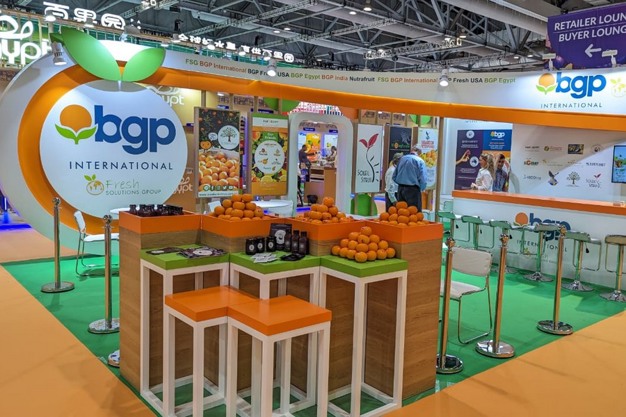The Egyptian citrus season has kicked off, starting with lemons, while grapefruit and mandarins are expected in the coming weeks. The main orange harvest is expected to begin in December. Orange production in Egypt has been on a consistent upward trend, and this season is no exception.
 "We anticipate a significantly larger crop compared to last year," says Mahmoud Abozaid, Procurement and Sales Manager for Egypt at BGP International. "Last season, the quality was somewhat lacking due to several factors, including heatwaves during the summer. While fruit sizes were good, the overall quality wasn't at its best. However, the quality of Egyptian oranges continues to improve each year, and we're seeing growing volumes."
"We anticipate a significantly larger crop compared to last year," says Mahmoud Abozaid, Procurement and Sales Manager for Egypt at BGP International. "Last season, the quality was somewhat lacking due to several factors, including heatwaves during the summer. While fruit sizes were good, the overall quality wasn't at its best. However, the quality of Egyptian oranges continues to improve each year, and we're seeing growing volumes."
Last year, the combination of lower fruit quality and extended shipping times—caused by disruptions in the Red Sea due to the Israel-Palestine conflict—created challenges for Egyptian exporters. Oranges remain Egypt's leading citrus export, accounting for around 90% of the more than 2.2 million tonnes exported.
"Egypt typically exports large volumes to Asia, but when the war broke out unexpectedly last year, exporters were caught off guard and had to continue shipping to those markets. Shipping companies were also unprepared, rerouting vessels around the Cape of Good Hope, which doubled transit times. This year, we're better informed and more experienced in serving these markets, whether from Egypt, Australia, or South Africa," Mahmoud explains.

He notes that many exporters are reluctant to take on the risk of longer shipping times this season, given the financial losses some faced last year due to claims on arrival.
"There are risks whether you go through the Red Sea or around the Cape. From a supply and demand perspective, I expect the Asian market to perform well this season. On the other hand, I don't foresee the European market doing as well, as exporters will likely flood that region with excess volumes. While countries like Spain and the Netherlands import large quantities, rising input costs mean we need higher returns. Markets like Brazil and Canada, though promising, don't absorb large volumes."
BGP International continues to focus on Asia, supported by strong partnerships and an established presence in key markets. "We have a solid team on the ground in Asia that can handle any issues at destination. For instance, during shipments from Egypt to Australia last year, we encountered protocol issues mid-transit, but our team successfully diverted the cargo to other markets, including Singapore. We've built strong connections across several Asian countries."
Mahmoud adds, "Other exporters often ask us to help redistribute their products. Many prefer to ship through us because of our experience and presence on the ground. This season will demand the highest quality due to the longer transit times, especially for our retail clients. While we hope for an improved season, I don't anticipate it will be one of the best."
For more information: Mahmoud Abozaid
Mahmoud Abozaid
BGP International
Tel: +20 100 997 2829
[email protected]
www.bgp.com.au/
